Peter Dutton pushes stronger stance on hate speech
Peter Dutton has called for tougher hate speech laws nationally to stop anti-Semitism, saying Jewish leaders should not have to pay legal bills for taking radical hate preachers to court.
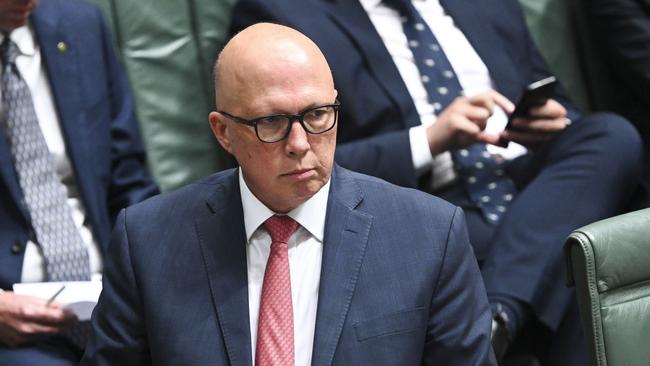
Peter Dutton has called for tougher hate speech laws to stop anti-Semitism, saying Jewish leaders should not have to pay legal bills for taking radical hate preachers to court.
It comes after The Australian revealed how the Executive Council of Australian Jewry has said it would take legal action against Sydney clerics who called Jews “monsters”, “descendants of pigs and monkeys”, and urged people to spit on Israel so “Jews would drown”.
The Opposition leader said it was “time to take this issue seriously” and the Albanese government should cover the costs of any case pursued by the ECAJ.
“Jewish community leaders should not have to plead for help to have the law enforced when their community is under siege,” Mr Dutton said.
“(And) should not have to foot the legal bill for actions the government should be taking.”
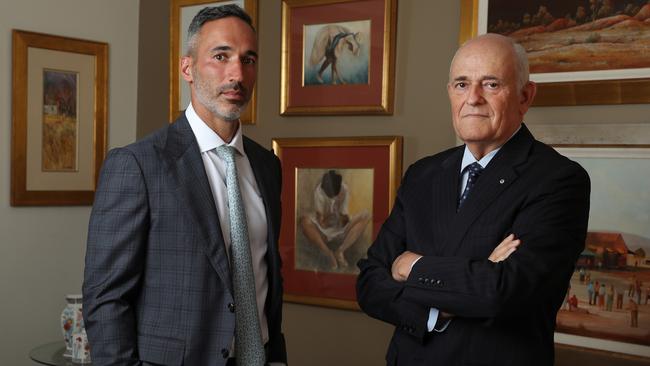
He said his party would support the government if it chose to strengthen legislation against hate speech.
“Not only should the government be strengthening the laws – for which I offer the federal Coalition’s full support – they should be reimbursing the Jewish community for legal action against these vile and repugnant attacks,” Mr Dutton said.
The ECAJ has previously brought cases to the Australian Human Rights Commission and Federal Court under section 18C of the civil Racial Discrimination Act, which outlaws racial hatred – including insulting, offending, intimidating and humiliating.
The Australian understands that this was one possibility being considered by the ECAJ – but that all legal options remained open – and it would soon announce what specific legal path it would pursue.
In 2000, it successfully brought a case to the commission, who determined that high-profile Holocaust denialist Fredrick Töben had contravened the act by publishing material online that racially vilified Jewish people.
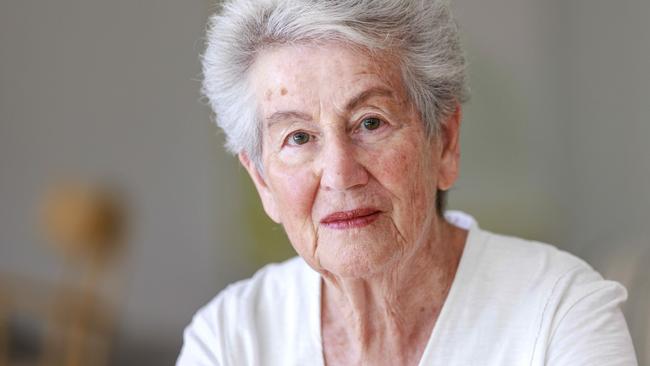
Holocaust survivor and former ECAJ president Nina Bassat said it was a “total failure” that a community organisation was having to be proactive amid authority inaction.
“This (legal action) should not be something a community organisation has to take up,” the 84-year-old said. “It’s a total failure of the system.”
Ms Bassat, a 30-year lawyer, said it “should have been addressed long before January”.
“It (existing legislation) is not working, there’s a failure either in its drafting or interpretation, or both,” she said.
“When hatred gets normalised, and not prosecuted, it tells people they can get away with it.”
Senator Dave Sharma, a former Australian ambassador to Israel, said it was a “fundamental role of government” to keep people safe.
“It’s a damning indictment of the state and federal government, and law enforcement, that the Jewish community is being forced to undertake private legal action to protect itself against incitement and intimidation,” he said.
Federal Attorney-General Mark Dreyfus said there was “no place” for anti-Semitism and hate speech, but also pointed to Labor’s “long record” in tackling it.
The Australian previously revealed how Mr Dreyfus could include hate speech provisions in the government’s new religious discrimination bill, which would make it illegal to ridicule someone for their faith.
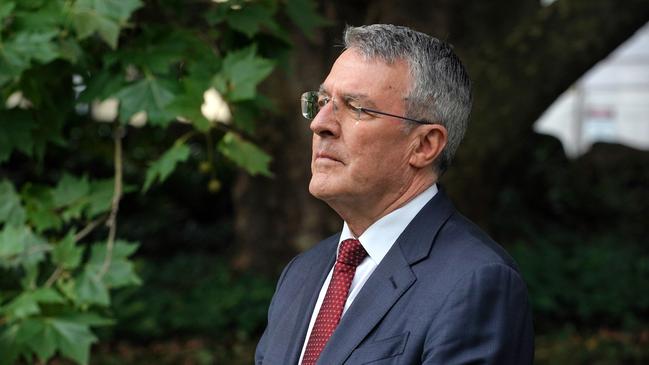
“Labor has a long record of supporting strong protections against hate speech and vilification, and successfully blocked the former Liberal government’s attempts to abolish section 18C of the Racial Discrimination Act,” the attorney-general said.
The Australian understands that – although keeping all options open – the most likely route the ECAJ could go down is the civil protections against race-based hate speech enclosed in section 18C.
Although its MPs have called on criminal legislation outlawing hate speech to be improved or “tested in court” on the clerics, sections of the Liberal Party have previously attempted to water down section 18C.
In 2014, the then Prime Minister, Tony Abbott, dropped plans to remove “offend” and “insult” from the provision.

A push by Liberal backbenchers in 2016 to resurrect the 18C reforms – and also remove “intimidate” as an offence – were voted down in the Senate in 2017.
Opposition Home Affairs spokesman James Paterson has previously said that “if it was up to me we’d put up a bill to repeal 18C every day until it passes”, he told Sky News in 2018, citing the Bill Leak cartoon case.
The Senator, however, has called on law-enforcement agencies to charge the clerics, and that “it was time” existing criminal provisions against the hate sermons were tested in court – given a “growing crisis of anti-Semitism in this country”.
This publication revealed how three clerics at the Al Madina Dawah Centre – Abu Ousayd, “Brother Ismail” and “Brother Muhammad” – gave incendiary hate sermons that peddled anti-Semitism.
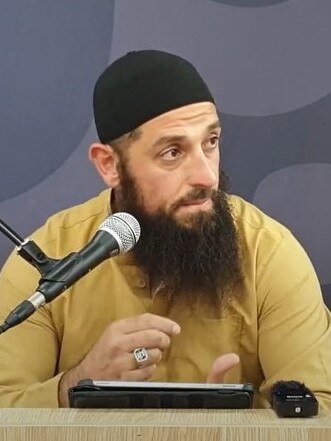
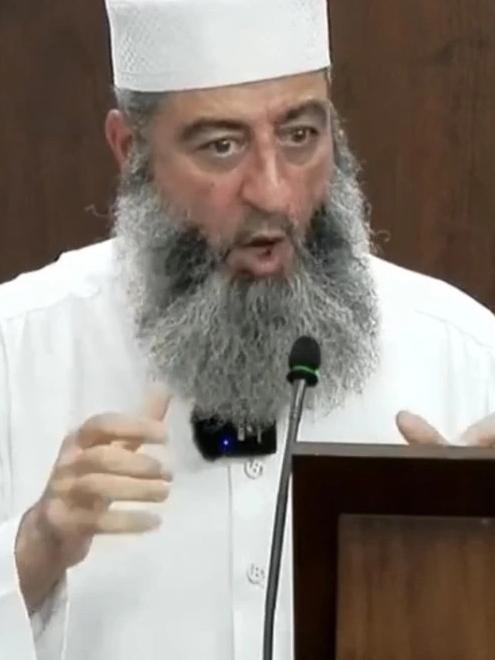
Another by sheik Ahmed Zoud at As-Sunnah mosque referred to Jews as “monsters … thirsty for bloodshed”, saying they “ran like rats” from Hamas.
Police ceased inquiries into three of the clerics.
A spokesman for the acting NSW attorney-general, Ron Hoenig, defended the Minns government’s record.
The government “streamlined” section 93z of the crimes act in November, which outlaws public incitement of violence on the basis of race and religion, by dropping the requirement for police to seek approval from the Director of Public Prosecutions before laying charges. It also made religious vilification unlawful under the Anti-Discrimination Act.
“The higher standard of proof and carefully defined nature of criminal offences reflects the significant penalties involved, including potential imprisonment, and the careful balancing with freedom of speech,” the spokesman said.
“The civil scheme has a lower standard of proof and allows for representative bodies to make complaints on behalf of a group of people, which is a deliberate feature of the civil scheme.
“ … Individuals and representative bodies have accesses to the complaints mechanism, including the referral of a complaint to the NSW Civil and Administrative Tribunal, where appropriate and provided for by the act.”


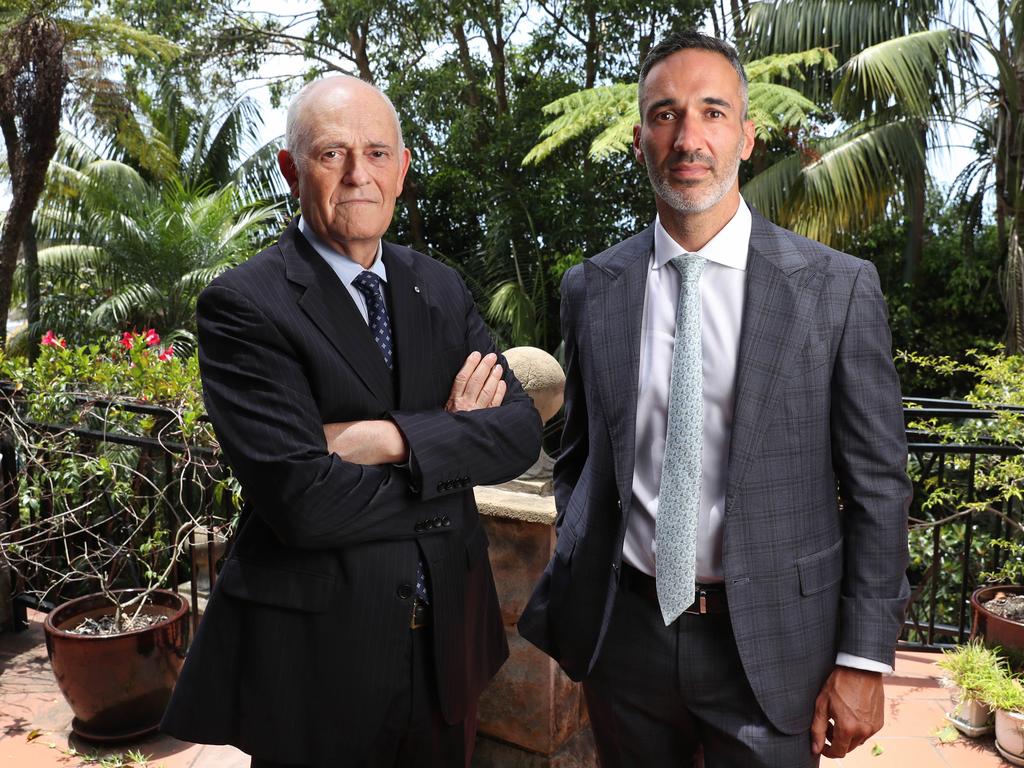




To join the conversation, please log in. Don't have an account? Register
Join the conversation, you are commenting as Logout